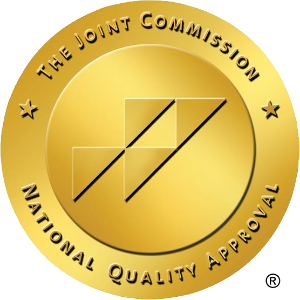Returning to work is a necessary and positive step in your life of sobriety and despite its extensive list of positives it is not the easiest thing to do.
Let’s start with the positives, returning to work is an important and major step in your long-term recovery. It has immediate effects on your life in the form of structure, income, and normalcy. While starting to receive an income again and having a daily routine are obvious benefits of returning to work, some other less obvious benefits include but are not limited to:
- Boosted self esteem
- Increased feeling of self-sufficiency
- Additional Responsibility
- Sense of community
All of these feelings will help you continue to grow in your sobriety and settle back into everyday life, but as we discussed above they don’t come without some risk.
With the return of responsibility comes additional stress and with it, the potential for burn out. This burnout can be caused by any number of situations in the workplace, but rest easy knowing you can take control of the situation, manage risk, and keep yourself feeling happy and healthy.
Know Your RIghts
To remove variables from an intimidating and unknown process it is hugely beneficial to know your rights in regards to returning to the workplace after an absence due to attending a substance abuse program.
You are afforded a good deal of coverage under the Americans with Disabilities act and if you are diagnosed by a professional then all you have to tell your employer is that you are out on “Family and Medical Leave Act leave” and when you intend to return.
Once you are declared “fit for duty” you are able to return to work without the fear of being questioned by management on where you were. You are of course welcome to explain if it helps you, but do not feel pressure to do so, you are within your rights to not disclose that information if it makes you more comfortable.
From there your workplace may have a E.A.P (Employee Assistance Program) that can help you with any workplace conflicts that may arise or even provide local referrals. And while many people don’t know about these programs they are there to be used so don’t be shy.
Know What You are Going to Say
As we just discussed you are under no pressure to explain why you were on a leave of absence, so it is important that before returning you work out how transparent or vague you would like to be about why you were gone.
If you have a close relationship with management it may be beneficial to talk to them about how much you want to share about why you had a leave of absence. You can just say you had a medical issue, you could explain exactly what you were doing, or you could simply say you took a long vacation.
No matter what you decide to share, remember that it is up to you. Do not let your company or coworkers pressure you into giving out private information or feelings, all you have to do is let people know that you are back now and ready to work.
Start Slow
Generally a return to work after an extended absence will result in a few meetings with both HR and your direct superiors. In these meetings work with them to create a return to action plan for yourself that allows you to ease back into the responsibility and stress of the workplace.
Setting up a plan goes a long way in taking any surprises for you and management out of play. Simultaneously it will ensure that everyone is on the same page as to how you can most easily return to being a contributor in the office.
Unfortunately there is not a clear and obvious path back that works for everyone so think about what will help you avoid feeling overwhelmed and work with that. Anything you can do to prevent yourself from falling back into old habits will make the transition easier and limit your chances of a relapse.
Often having a specific plan for when you feel stressed will help you mitigate that stress quickly and effectively. Think about building this into your return to work plan that you made above. Anything from taking a friday off or building an afternoon exercise break into your schedule can help you manage stress while still contributing effectively to your team.
Ask For Help
[Text Wrapping Break]While you are executing your plan it is a given that unexpected circumstances will pop up, whether it is a shorter deadline or more work, don’t be afraid to ask for help. This is something that if brought up in your return plan won’t come as a surprise to your team.
While it is important to ask for help you should also ensure you don’t abuse this resource. Without holding yourself responsible you will not gain the self confidence and independence you need to continue to transition back into your life.
Make New Rules
Outside of your normal work routine being back in the office also involves a host of social obligations that can be even harder to navigate then the newfound work load. In order to help avoid awkward situations while considering your own health, it is important to set up a new set of guidelines.
Everything from lunches to holiday parties present a unique challenge to your new found sobriety. Whether you have been open about what you are going through or not, you can suggest replacing bars with coffee shops and casual lunches with take out pizza. This will allow you to maintain workplace relationships, develop a new normal, and avoid triggers all at the same time.
You are not alone
As you embark on your journey of returning to the workplace it will be easy to start feeling alone and isolated due to your recent absence. You must remember that you are going through something that just about all newly sober people go through.
So while you may not have anyone to turn to within your office, you can still utilize all of your normal support systems. Reach out to your sponsor, confidants, and other aftercare outlets if you are starting to feel stressed or burnt out and know that they have been through it and you will get through it as well.
Returning to Work
When it comes down to it returning to work is an important and necessary step in your life of sobriety. With a return to work you will experience a boost in self confidence, an enhanced feeling of independence, and the positive feeling of falling back into a sustainable routine.
With these positive feelings you will also bring stress and burnout back into your life. With these intimidating feelings right near the surface it is important to give yourself every chance to succeed. As you return to work make sure to:
- Know Your Rights
- Know What You are Going To Say
- Start Slow
- Ask For Help
- Make New Rules
- Remember You are not Alone
Following and adapting these steps to your own personality will ensure that you can get right back into the swing of things and continue to reintegrate into a sober lifestyle.





